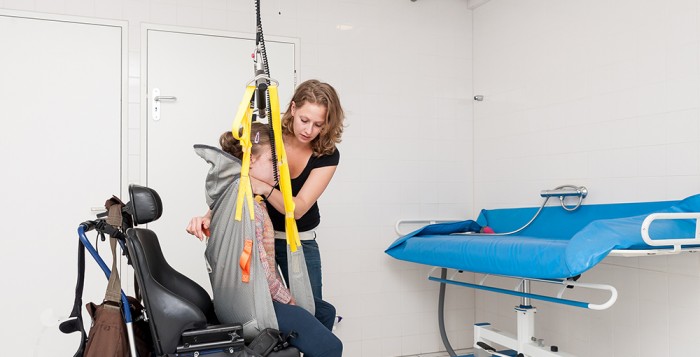CMS Requests Input on Enhancements to Star Rating Methodology
The Centers for Medicare and Medicaid Services (CMS) has contracted with the Center for Outcomes Research and Evaluation (CORE) to re-evaluate the Overall Hospital Quality Star Rating on CMS’ hospital quality website, Hospital Compare. The goal of the Overall Hospital Quality Star Rating project is to improve the usability, accessibility, and interpretability of this website for patients and consumers.
CMS and the development team are seeking stakeholder input on several methodology reevaluation items designed to enhance the Overall Star Rating methodology. This public input period aims to highlight technical and policy considerations for the public. While the team has evaluated several methodological enhancements and continues to evaluate others, this public input period is designed to solicit specific feedback on the content, enhancements listed, as well as topics in active re-evaluation.
Members are encouraged to review the document thoroughly and provide feedback by close of business on Wednesday, September 27, 2017 via email.
Special Open Door Forum to Focus on IMPACT Act
On Thursday, September 28, 2017, from 2:00 pm to 3:00 pm, the Centers for Medicare and Medicaid Services (CMS) will host a special open door forum (SODF) that will provide information and solicit feedback on the Improving Medicare Post-Acute Care Transformation (IMPACT) Act of 2014. Topics will include the goals of the IMPACT Act, RAND contract activities for item development (including pilot test results and plans for the upcoming national field test), and identifying opportunities for providers, consumers, stakeholders, researchers, and advocates to become involved over the next year. CMS welcomes questions, comments, and ideas from providers, patients, consumers, researchers, and advocates in advance or during the forum. Questions, comments, and ideas should be submitted via email. The presentation for the SODF is posted on the IMPACT Act Downloads and Videos web page.
To participate in the SODF, dial:
1-800-837-1935
Conference ID: 66557294
A transcript and audio recording of this SODF will be posted to the Special Open Door Forum website, and for downloading under the downloads section, as well as the IMPACT Act Downloads and Videos web page.
Presentation on TBI As a Result of Domestic Violence
The Council on Brain Injury (CoBI) will be offering an upcoming presentation and discussion as part of their Clinical Forum Series on Thursday, September 21, 2017, from 3:00 pm to 4:30 pm. The presentation, Traumatic Brain Injury as a Result of Domestic Violence: Education, Screening & Model Practices, will be facilitated by Fern Wilkerson, MA, from the Pennsylvania Coalition Against Domestic Violence (PCADV).
Registration is free and Certified Brain Injury Specialist (CBIS) credits will be available. Contact Dana Rhoads for additional information or to register for the program.
Upcoming Call on IMPACT Act: Medicare Spending Per Beneficiary Measures
The Centers for Medicare and Medicaid Services (CMS) and measure developers will host an upcoming call on Wednesday, September 6, 2017, from 1:30 pm to 3:00 pm that will focus on the IMPACT Act’s adopted Medicare Spending per Beneficiary Post-Acute Care (PAC) resource use measures. The call will focus on the components of each measure, as well as public reporting.
The IMPACT Act of 2014 requires the development of resource use measures for PAC providers, including inpatient rehabilitation facilities (IRFs), skilled nursing facilities (SNFs), home health agencies (HHAs), and long-term care hospitals (LTCHs).
A question and answer session will follow the presentation. To participate in the call, please register here.
Jimmo Settlement Agreement Web Page Launched
The Centers for Medicare and Medicaid Services (CMS) has launched the Jimmo Settlement Agreement web page. This web page provides access, in one location, to various public documents and resources related to the Jimmo Settlement Agreement, including a Frequently Asked Questions (FAQs) link.
Background on Settlement Agreement:
On January 24, 2013, the US District Court for the District of Vermont approved a settlement agreement in the case of Jimmo v. Sebelius, in which the plaintiffs alleged that Medicare contractors were inappropriately applying an “Improvement Standard” in making claims determinations for Medicare coverage involving skilled care (e.g., the skilled nursing facility (SNF), home health (HH), and outpatient therapy (OPT) benefits). The settlement agreement sets forth a series of specific steps for CMS to undertake, including issuing clarifications to existing program guidance and new educational material on this subject. The goal of this settlement agreement is to ensure that claims are correctly adjudicated in accordance with existing Medicare policy, so that Medicare beneficiaries receive the full coverage to which they are entitled.
The Jimmo Settlement Agreement may reflect a change in practice for those providers and contractors who may have erroneously believed that the Medicare program covers nursing and therapy services under these benefits only when a beneficiary is expected to improve. The Settlement Agreement is consistent with the Medicare program’s regulations governing maintenance nursing and therapy in skilled nursing facilities, home health services, and outpatient therapy (physical, occupational, and speech) and nursing and therapy in inpatient rehabilitation hospitals for beneficiaries who need the level of care that such hospitals provide.
CMS Proposes Cancellation of Cardiac, Orthopedic Bundled Payment Models
The Centers for Medicare and Medicaid Services (CMS) has submitted a proposed rule (“Cancellation of Advancing Care Coordination through Episode Payment and Cardiac Rehabilitation Incentive Payment Models; Changes to Comprehensive Care for Joint Replacement Payment Model”) to the Office of Management and Budget (OMB). The proposed rule is currently pending regulatory review.
Included in the proposed rule is the reduction of the number of mandatory geographic areas participating in the Center for Medicare and Medicaid Innovation’s (CMMI’s) Comprehensive Care for Joint Replacement (CJR) model from 67 to 34. In addition, CMS proposes to allow CJR participants in the 33 remaining areas to participate on a voluntary basis. In this rule, CMS also proposes to make participation in the CJR model voluntary for all low volume and rural hospitals in all of the CJR geographic areas.
CMS also is proposing through this rule to cancel the Episode Payment Models (EPMs) and the Cardiac Rehabilitation (CR) incentive payment model, which were scheduled to begin on January 1, 2018.
The proposed rule (CMS-5524-P) will be published in the Federal Register. Public comments will be due by October 16, 2017.
Tomorrow’s ACL Listening Session to Include Discussion on TBI Funding
The Administration for Community Living (ACL) has extended an invitation to participate in a listening session tomorrow (Friday, August 11, 2017) from 1:30 pm to 3:30 pm. This listening session is an opportunity to hear about the Partnerships for Innovation, Inclusion, and Independence, which is a proposed grant program that would combine the activities carried out by the State Councils on Developmental Disabilities, Statewide Independent Living Councils, and Traumatic Brain Injury Advisory Councils into a single state grant program. Please refer to the invite for additional information.
Listening Session Dial-In Information:
Number: 800-857-9877
Participant Code: 8400563
Additional Info on OLTL Proposed Waiver Amendments
On July 28, 2017, an Info was issued regarding the Office of Long-Term Living’s (OLTL’s) proposed waiver amendments to the Aging, Attendant Care, Independence, and OBRA waivers. On August 1, OLTL issued a follow-up email regarding these amendments, as well as some additional information including how to view a side-by-side comparison of the current and revised language, the comment forms, and information on webinars that have been scheduled in August. The webinars will be used to receive comments on the proposed waiver amendments. The information in that email is provided below for additional details. As a reminder, the public comment period on the proposed waiver amendments ends on August 31, 2017.
From OLTL
In September 2017, the Department of Human Services (DHS) Office of Long-Term Living (OLTL) will be submitting amendments to the Aging, Attendant Care, Independence, and OBRA waivers. To view a side-by-side comparison of the current and revised language, and to access the amendments in their entirety, please use this link.
On this site, select the individual waiver amendment you would like to view under “Related Topics.” All documents are available in alternate format and in paper copy upon request by calling the Office of Long-Term Living Bureau of Policy and Regulatory Management at 717-783-8412.
Public Input
The July 29, 2017, Volume 47, Number 30 issue of the Pennsylvania Bulletin contains the public notice announcing amendments to the Aging, Attendant Care, Independence, and OBRA waivers. OLTL is seeking public comment on these waiver amendments. Interested persons are invited to submit written comments to the Department of Human Services, Office of Long-Term Living, Bureau of Policy and Regulatory Management, Attention: Aging Waiver, Attendant Care, Independence, or OBRA Waiver, PO Box 8025, Harrisburg, PA 17105-8025. Comments can also be sent via email using the comment forms that OLTL has provided. The comment forms can be found at this link.
On this site, select the individual waiver amendment you would like to view under “Related Topics” and the comment form will be listed in the documents. The public comment period ends on August 31, 2017. Comments received within the 30-day comment period will be reviewed and considered for revisions to the amendments.
The Office of Long-Term Living will offer two webinars in August for public input and discussion. The webinars will be held on Monday, August 7, 2017, from 10:00 am – 11:00 am and Wednesday, August 16, from 1:30 pm – 2:30 pm. Please see the information below for further details on the scheduled webinars.
- Please register here for the Aging, Attendant Care, Independence, and OBRA Waiver Changes Webinar on August 7, 2017 10:00 am EDT.
- Please register here for the Aging, Attendant Care, Independence, and OBRA Waiver Changes Webinar on August 16, 2017 1:30 pm EDT.
After registering, you will receive a confirmation email containing information about joining the webinar. The connection link you receive will be unique to you and should not be shared with others.
CMS Issues FY 2018 IRF PPS Final Rule
On July 31, 2017, the Centers for Medicare and Medicaid Services (CMS) released the fiscal year (FY) 2018 inpatient rehabilitation facility prospective payment system (IRF PPS) final rule. Some of the key provisions contained in the final rule include:
Updates to IRF Payment Rates
Update to the Standard Payment Rates
CMS finalized an update to the IRF PPS payments to reflect a 1.0 percent increase factor, in accordance with section 1886(j)(3)(C)(iii) of the Social Security Act, as added by section 411(b) of the Medicare Access and CHIP Reauthorization Act of 2015 (MACRA). An additional approximate 0.1 percent decrease to aggregate payments due to updating the outlier threshold results in an overall estimated update for FY 2018 of approximately 0.9 percent (or $75 million), relative to payments in FY 2017.
Update to CMG Weights, Lengths of Stay and Comorbidities
CMS updated the Case Mix Group (CMG) weights based on FY 2015 IRF cost report data and the FY 2016 IRF claims data, as well as the average lengths of stay (ALOS) per CMG. The final rule estimates 99.3 percent of all IRF cases are in CMGs and tiers that would experience less than a five percent change in the CMG relative weight under their proposal.
Rural Adjustment Transition
FY 2018 is the third and final year of the phase-out of the 14.9 percent rural adjustment for the 20 IRF providers that were designated as rural in FY 2015 and changed to urban under the new Office of Management and Budget (OMB) delineations in FY 2016. As a result, the rural adjustment for these IRF’s will no longer be applied.
ICD-10-CM Presumptive Compliance Coding Changes
CMS made refinements to the ICD-10-CM lists used in determining IRFs’ presumptive compliance with the 60 Percent Rule. The complete lists of the adopted code revisions are available for download on the IRF Data Files website. CMS notes that the version of these finalized lists will constitute the baseline for any future updates to the presumptive methodology lists. The changes will be effective for discharges on or after October 1, 2017. CMS adopted only those coding changes that will increase the number of cases counting toward presumptive compliance and did not adopt any changes that would remove codes from counting toward the presumptive compliance threshold. CMS also stated that since it is not making any negative changes, it would consider the comments it received on the need for a delayed effective dates should any of these negative changes occur in future rulemakings.
For FY 2018, the following refinements to the ICD-10-CM lists used in determining IRFs’ presumptive compliance to ensure that these lists reflect as accurately as possible the types of patients that should count presumptively toward the 60 percent rule were finalized by:
- Counting certain ICD-10-CM diagnosis codes for patients with traumatic brain injury and hip fracture conditions; and
- Revising the presumptive methodology list for major multiple trauma by counting IRF cases that contain two or more of the ICD-10-CM codes from three major multiple trauma lists in the specified combinations.
CMS did not finalize the proposal to remove certain ICD-10-CM codes from the presumptive methodology at this time indicating they would continue to monitor and consider their appropriateness for inclusion on the presumptive methodology lists for future policy development and rulemaking.
Other Policy Changes
CMS proposed several changes for the purposes of eliminating redundancies and simplifying administrative burden for providers and for the agency and finalized the following:
- Remove the 25 percent payment penalty for late submissions of the IRF PAI beginning October 1, 2017;
- Remove the voluntary swallowing assessment item (Item 27) in the IRF PAI beginning October 1, 2017; and
- Use the height/weight items on the IRF PAI (items 25A and 26A) to determine patients’ BMI greater than 50% for cases of lower extremity single joint replacement.
IRF Quality Reporting Program (QRP)
Under the IRF QRP, the applicable annual payment update for any IRF that does not submit the required data to CMS is reduced by 2 percentage points. In this final rule, CMS is finalizing the replacement of the current pressure ulcer measure with an updated version of that measure, as well as the removal of the All-Cause Unplanned Readmission Measure for 30 Days Post-Discharge from IRFs (NQF #2502). CMS is also finalizing the public display of six additional quality measures on the IRF Compare website in calendar year 2018.
In addition to the proposals related to quality measures and public reporting, CMS is finalizing that the data IRFs submit on the measure Percent of Residents or Patients with Pressure Ulcers That Are New or Worsened (Short Stay) (NQF #0678) meet the definition of standardized patient assessment data for the FY 2019 IRF QRP. For the FY 2020 IRF QRP, CMS is finalizing that the data IRFs submit on the measures Application of Percent of Long-Term Care Hospital Patients with an Admission and Discharge Functional Assessment and a Care Plan That Addresses Function (NQF #2631) and Changes in Skin Integrity Post-Acute Care: Pressure Ulcer/Injury meet the definition of standardized patient assessment data. However, in response to the comments received for the FY 2020 program year, CMS is not finalizing the proposed additional standardized data elements.
Request for Information
CMS also included a Request for Information (RFI) in the proposed rule for continuing feedback on the Medicare Program. Input was requested on potential regulatory, sub-regulatory, policy, practice and procedural changes to make the delivery system less bureaucratic and complex, reduce burden for clinicians and providers, and increases quality of care while decreasing cost. CMS said it would not respond to RFI comment submissions in the final rule, but rather will actively consider all input in developing future regulatory proposals or future sub-regulatory guidance. There was no response provided in the final rule.
The final rule will be published in the August 3, 2017 Federal Register, which will be sent to members upon publication.
















